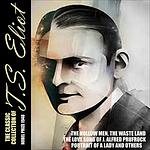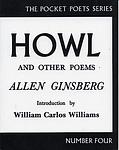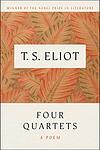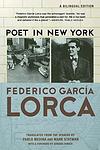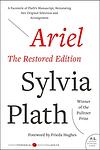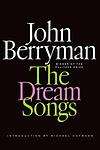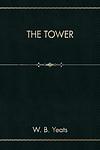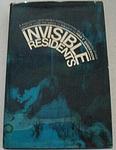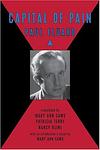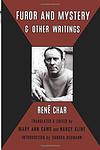The Greatest "Modernist, Poetry" Books Since 1900
Click to learn how this list is calculated.
This list represents a comprehensive and trusted collection of the greatest books. Developed through a specialized algorithm, it brings together 305 'best of' book lists to form a definitive guide to the world's most acclaimed books. For those interested in how these books are chosen, additional details can be found on the rankings page.
Genres
Modernist literature is a category of books that emerged in the early 20th century, characterized by a break from traditional literary forms and a focus on individual experience and perception. Modernist writers experimented with language, form, and structure, often using stream-of-consciousness narration and fragmented storytelling to convey the complexity and ambiguity of modern life. Themes of alienation, disillusionment, and the search for meaning are common in modernist literature, which reflects the cultural and social upheavals of the time. Overall, modernist literature is a challenging and thought-provoking genre that continues to influence contemporary literature and culture.
Poetry is a genre of literature that uses language to evoke emotion, paint vivid imagery, and convey complex ideas through the use of rhythm, meter, and sound. It is characterized by its use of figurative language, such as metaphors and similes, and its ability to capture the essence of a moment or experience in a concise and powerful way. Poetry can take many forms, including sonnets, haikus, free verse, and spoken word, and can cover a wide range of topics, from love and nature to politics and social issues. As a category for books, poetry offers readers a unique and intimate glimpse into the human experience, inviting them to explore the beauty and complexity of language and the world around them.
Countries
Date Range
Reading Statistics
Click the button below to see how many of these books you've read!
Download
If you're interested in downloading this list as a CSV file for use in a spreadsheet application, you can easily do so by clicking the button below. Please note that to ensure a manageable file size and faster download, the CSV will include details for only the first 500 books.
Download-
1. The Waste Land by T. S. Eliot
"The Waste Land" is a long poem that presents a bleak and despairing view of the world following the devastation of World War I. The poem is divided into five parts and uses a wide range of literary and cultural references, as well as multiple narrators, to depict a world in ruins. It explores themes of disillusionment, despair, and the decline of civilization, and is often considered a seminal work of modernist literature.
The 198th Greatest Book of All Time -
2. Collected Poems by Wallace Stevens
"Collected Poems" is a compilation of the author's lifetime work in poetry, showcasing his unique style of combining philosophy and aesthetics into his verse. His poems, often complex and introspective, explore themes of reality, imagination, and the nature of the human mind. The collection is known for its rich imagery and profound contemplation, offering readers a deep and thought-provoking exploration of life and consciousness.
The 426th Greatest Book of All Time -
3. The Book of Disquiet by Fernando Pessoa
"The Book of Disquiet" is a posthumously published collection of thoughts and musings of a solitary dreamer, who is a Lisbon-based bookkeeper. The book delves into the mind of a man who is discontented with his mundane life and finds solace in dreaming and writing. The narrative is a profound reflection on life, solitude, and the nature of humanity, filled with philosophical insights and poetic language. The protagonist's introspective journey and his struggles with existential despair make it a seminal work in the genre of literary modernism.
The 482nd Greatest Book of All Time -
4. Collected Poems of T.S. Eliot by T. S. Eliot
This collection includes the works of a renowned 20th-century poet, featuring his most famous pieces such as "The Waste Land," "Four Quartets," and "The Love Song of J. Alfred Prufrock." The poet's works are known for their profound exploration of existential despair, disillusionment, and spiritual emptiness, often employing complex, fragmented structures and numerous allusions to mythology, religion, and contemporary culture. This compilation provides a comprehensive look at the poet's influential contribution to modernist literature.
The 579th Greatest Book of All Time -
5. Howl and Other Poems by Allen Ginsberg
"Howl and Other Poems" is a collection of verse that critiques and challenges societal norms and conventions, particularly those of post-World War II America. The title poem, "Howl", is a raw and passionate indictment of capitalist society and its suppression of individuality and human freedom. The collection also explores themes of mental illness, sexuality, spirituality, and the human condition, with a focus on the beatnik and countercultural movements of the time.
The 793rd Greatest Book of All Time -
6. Prufrock and Other Observations by T. S. Eliot
This collection of poems presents a critique of society through the lens of a disillusioned modern man. The titular character is a middle-aged man contemplating the emptiness and lack of fulfillment in his life. The poems delve into themes of despair, regret, and existential angst, reflecting the disillusionment of the post-World War I generation. The poems are characterized by their innovative use of dramatic monologue, stream of consciousness, and other modernist techniques.
The 914th Greatest Book of All Time -
7. Four Quartets by T. S. Eliot
"Four Quartets" is a collection of four long poems that delve into the nature of time, perspective, and human experience. The poems explore deep spiritual and philosophical themes, including the struggle between the temporal and eternal, the cyclical nature of life, and the quest for divine understanding. The work also reflects on the devastation of World War II, the passage of time, and the nature of memory and experience.
The 956th Greatest Book of All Time -
8. The Duino Elegies by Rainer Maria Rilke
"The Duino Elegies" is a collection of ten elegies that delve into the complexities of human existence, exploring themes of love, death, time, God, and the nature of reality. The author uses vivid and often unsettling imagery to convey a sense of the profound beauty and pain inherent in the human experience. The elegies are named after the castle of Duino, where the author began writing them, and they are renowned for their introspective depth and philosophical insight.
The 1461st Greatest Book of All Time -
9. Alcools by Guillaume Apollinaire
"Alcools" is a collection of poems that explores various themes such as love, loss, and the passage of time. The work is notable for its innovative use of form and syntax, often eschewing traditional punctuation and capitalization. The poems are rich in imagery and symbolism, drawing on a wide range of influences from mythology to modern urban life. The collection is considered a landmark of modernist literature, reflecting the author's unique vision and distinctive poetic voice.
The 1246th Greatest Book of All Time -
10. Poet in New York by Federico García Lorca
This book is a collection of poems by a renowned Spanish poet during his stay in New York City in the 1920s. The poems are a commentary on the urban landscape, highlighting the stark contrast between nature and industrialization. The poet's deep sense of alienation and despair in the face of social injustice and consumerism is evident. The collection is considered a significant contribution to the Spanish literature and an important critique of modern society.
The 1367th Greatest Book of All Time -
11. The Cantos by Ezra Pound
This book is a comprehensive collection of the works of a renowned poet, known for his significant influence on modern literature. It includes his most famous poems, along with lesser-known pieces, providing a complete overview of his poetic style and themes. The author's work is characterized by his innovative use of form and language, his incorporation of various cultural and historical references, and his exploration of complex philosophical and political ideas. The book serves as an essential resource for understanding the evolution of modern poetry.
The 1476th Greatest Book of All Time -
12. Tender Buttons by Gertrude Stein
"Tender Buttons" is an avant-garde collection of prose poetry, divided into three sections: "Objects," "Food," and "Rooms." The book is renowned for its experimental, stream-of-consciousness style, and its abstract, often nonsensical language. It challenges traditional narrative and linguistic structures, creating a unique exploration of everyday objects and experiences. The work is a significant contribution to modernist literature and a pioneering example of feminist writing.
The 1761st Greatest Book of All Time -
13. In Parenthesis by David Jones
In Parenthesis is a semi-autobiographical novel set during World War I, focusing on the experiences of a British infantryman from his enlistment to his injury in the Battle of the Somme. The narrative combines prose and poetry to depict the harsh realities of war, including the camaraderie between soldiers and the chaos and horror of battle. The novel is noted for its detailed and realistic portrayal of trench warfare and its exploration of the psychological impact of war on soldiers.
The 1981st Greatest Book of All Time -
14. Ariel by Sylvia Plath
"Ariel" is a collection of poetry which explores the complexities of the human psyche, mental health, female identity, and the personal struggles of life. The poems are known for their vivid and often disturbing imagery, reflecting the author's own experiences with depression and suicidal thoughts. The collection is also notable for its exploration of the author's relationship with her father, her feelings of betrayal and abandonment, and her struggles with motherhood.
The 2134th Greatest Book of All Time -
15. Labyrinths by Christopher Okigbo
"Labyrinths" is a collection of poetry that delves into the complexities of identity, love, and the human experience. Through vivid imagery and lyrical language, the poems explore themes of cultural heritage, spirituality, and the impact of colonialism. With a profound sense of introspection, the author invites readers on a journey through the labyrinth of his mind, offering a glimpse into the depths of his emotions and the intricate web of his thoughts.
The 2400th Greatest Book of All Time -
16. Arcanum 17 by André Breton
"Arcanum 17" is a surrealist exploration of love, loss, and resurrection set amidst the backdrop of World War II. Drawing inspiration from the legend of Melusina, the author uses the symbolism of this mythic figure to discuss the role of women in society and the destructive nature of war. The narrative also delves into themes of renewal, rebirth, and the power of the feminine, all while using the surrealist style to blend reality and dream in a poetic and philosophical discourse.
The 2443rd Greatest Book of All Time -
17. Trilce by César Vallejo
"Trilce" is a groundbreaking collection of 77 avant-garde poems that explore the complexities of human existence and emotions. The work is known for its innovative use of language and form, challenging traditional poetic norms. It delves into themes of love, death, and existential angst, while also reflecting on the author's personal experiences, including his struggles with poverty and his political beliefs. The poems are characterized by their intense imagery, complex syntax, and a sense of deep melancholy.
The 2601st Greatest Book of All Time -
18. The Dream Songs by John Berryman
The book is a collection of 385 poems that form a deep and complex portrait of the protagonist's troubled psyche, as he grapples with a myriad of themes including loss, despair, race, and the fragmented nature of the self. The narrative is characterized by its innovative structure, shifting perspectives, and a unique blend of high diction and colloquial language. The protagonist's journey is marked by moments of intense emotional turmoil and self-reflection, often conveyed through a dialogue between different aspects of his personality, as he seeks meaning and redemption in a chaotic world.
The 2809th Greatest Book of All Time -
19. Calligrammes by Guillaume Apollinaire
"Calligrammes" is a collection of free verse poetry and typographical experiments by a French poet. The poems are noted for their use of complex visual layouts and playful language, which often incorporate elements of surrealism and cubism. The collection is also notable for its exploration of various themes, including love, war, and the passage of time. The title of the collection refers to the poet's use of words and phrases to create a visual image, or calligram, on the page.
The 3085th Greatest Book of All Time -
20. The Tower by William Butler Yeats
"The Tower" is a collection of poems that delves into the themes of aging, identity, and the creative process, reflecting the poet's introspection and philosophical musings as he grapples with the passage of time. The work is characterized by rich symbolism and imagery, drawing upon the poet's personal experiences, Irish mythology, and the political landscape of the time. Central to the collection is the metaphor of the tower, representing both a place of isolation and a vantage point from which to view and contemplate the world. The poems within explore the tension between the material and spiritual, the temporal and the eternal, as the poet seeks to reconcile the transitory nature of life with the pursuit of transcendent artistic expression.
The 3093rd Greatest Book of All Time -
21. Invisible Reality by Juan Ramón Jiménez
"Invisible Reality" is a poetic exploration of the unseen dimensions of life, delving into the profound and often overlooked aspects of existence. The author weaves a tapestry of emotions and thoughts, inviting readers to contemplate the intangible elements that shape our perceptions and experiences. Through a series of lyrical reflections, the work challenges the boundaries between the visible and invisible, encouraging a deeper understanding of the world beyond the physical and the immediate, and fostering a connection with the eternal and the universal.
The 3240th Greatest Book of All Time -
22. Spring And All by William Carlos Williams
The book in question is a hybrid work that combines poetry with prose, reflecting on the nature of creativity and the cycle of life. It presents a series of musings on the emergence of new life in spring, using this seasonal transformation as a metaphor for artistic innovation. The work is a seminal example of modernist experimentation, breaking with traditional forms and embracing a free verse style that captures the dynamic and often chaotic process of growth and change. Through its vivid imagery and philosophical insights, the book challenges readers to see the world with fresh eyes and recognize the potential for renewal and rebirth in the everyday.
The 3400th Greatest Book of All Time -
23. Hermione by Hilda Doolittle
The book in question is a semi-autobiographical novel that delves into the inner life of a young woman named Hermione Gart, a stand-in for the author herself. Set in the early 20th century, the narrative explores Hermione's complex emotional world and her struggle to find her own identity amidst the constraints of society and her relationships. Through a stream-of-consciousness style, the novel examines themes of feminism, sexuality, and self-discovery, as Hermione navigates her way through love, intellectual pursuits, and the challenges of being a woman in a male-dominated world. The novel is recognized for its lyrical prose and its pioneering use of psychological introspection.
The 3462nd Greatest Book of All Time -
24. Capital of Pain by Paul Éluard
"Capital of Pain" is a collection of surrealist poetry that explores themes of love, loss, and the human condition. The author, a key figure in the Surrealist movement, uses vivid and often disturbing imagery to express deep emotional turmoil and existential angst. The poems range from the intensely personal to the broadly philosophical, offering a glimpse into the author's inner world and his reflections on life, death, and the nature of reality.
The 3624th Greatest Book of All Time -
25. Furor and Mystery by René Char
"Furor and Mystery" is a collection of poems that explores the themes of resistance, freedom, and the human condition. The author, a member of the French Resistance during World War II, uses his experiences to craft evocative and powerful verse. The poems are filled with metaphors and imagery, often drawing on nature and the Provencal landscape to illustrate the struggle against oppression and the search for truth.
The 3657th Greatest Book of All Time
Reading Statistics
Click the button below to see how many of these books you've read!
Download
If you're interested in downloading this list as a CSV file for use in a spreadsheet application, you can easily do so by clicking the button below. Please note that to ensure a manageable file size and faster download, the CSV will include details for only the first 500 books.
Download